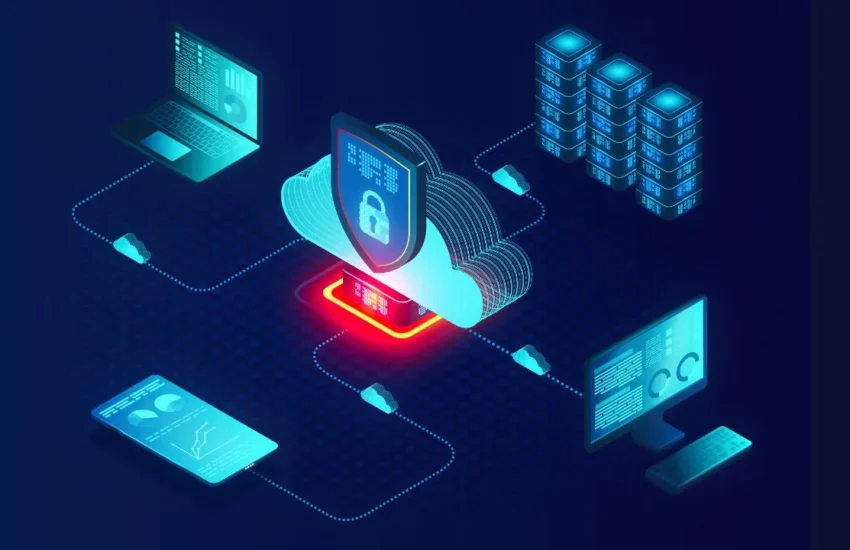As businesses grow increasingly digital and mobile, endpoints—like laptops, desktops, tablets, and smartphones—become key targets for cyberattacks. These devices are gateways into your IT environment, and without proper protection, they can expose sensitive data and systems to serious risk. That’s why every organization needs reliable endpoint security solutions in place.
Whether you’re managing a remote workforce or securing on-site operations, endpoint protection is essential for malware defense, threat prevention, and overall device protection. With the right IT security tools, businesses can stop breaches before they begin and ensure a safer digital workspace.
What Is Endpoint Security?
Endpoint security is a set of cybersecurity strategies and technologies that protect endpoint devices from cyber threats. It ensures that each device accessing your network is compliant, secure, and continuously monitored.
These endpoint security solutions are often delivered via software agents installed on user devices, working in tandem with centralized management platforms. They’re designed to stop threats like ransomware, keyloggers, phishing payloads, and other forms of malware.
Why Endpoint Security Matters Today
- More Devices, More Threats: With the rise of bring-your-own-device (BYOD) and remote work, endpoint security has become more critical than ever.
- Sophisticated Malware: Attackers now use advanced methods to bypass traditional antivirus, requiring smarter malware defense.
- Insider Threats: Negligent employees or compromised endpoints can unknowingly serve as entry points for cybercriminals.
- Regulatory Compliance: Industries must protect endpoints to meet compliance standards like HIPAA, NIST, and GDPR.
Key Features of Effective Endpoint Security Solutions
1. Antivirus and Anti-Malware Protection
Real-time scanning and behavioral detection help catch known and unknown threats before they execute on your device.
2. Firewall and Intrusion Prevention
Firewalls block unauthorized traffic, while intrusion prevention systems (IPS) detect and stop malicious activity.
3. Device Control and Application Whitelisting
Restrict USB usage and prevent unauthorized apps from running on user devices.
4. Remote Monitoring and Management
IT teams can track and manage endpoints remotely, deploy updates, and respond to threats instantly.
5. Data Encryption
Encrypting files on devices ensures data remains safe, even if the device is lost or stolen.
6. Patch and Vulnerability Management
Automated patching fixes known vulnerabilities and closes security gaps on endpoints.
7. Threat Prevention with AI and ML
Modern tools use artificial intelligence to detect behavioral anomalies that indicate cyber threats.
Benefits of Endpoint Security Solutions
- Comprehensive Device Protection: Safeguard all user endpoints, whether in-office or remote.
- Faster Threat Detection: Identify and respond to malware before it spreads.
- Productivity Continuity: Prevent ransomware attacks and downtime that can halt operations.
- Secure Remote Workforce: Ensure remote employees work on secure devices, regardless of their location.
- Streamlined IT Operations: Centralized dashboards reduce the complexity of managing multiple endpoints.
Challenges Without Endpoint Protection
Without strong endpoint security solutions, companies face serious risks:
- Ransomware can encrypt critical business files.
- Keyloggers may harvest login credentials.
- Outdated or unpatched software can be exploited.
- Infected devices may serve as a launchpad for larger network attacks.
In short, ignoring device protection can lead to data breaches, operational downtime, and even permanent data loss.
How We Can Help You
At Sentinel Cyber Defender, we deliver customized endpoint security solutions that are scalable, reliable, and built for your business needs. Our services include:
- Centralized endpoint monitoring and threat response
- Antivirus and anti-malware tools with cloud integration
- Secure device configurations and patch management
- Remote workforce protection for hybrid teams
- Data encryption and USB control solutions
- 24/7 technical support and cybersecurity consultation
Whether you’re managing 10 devices or 10,000, our expert team ensures every endpoint is defended against today’s most advanced threats.
Let’s Secure Your Devices
With Sentinel Cyber Defender, you get end-to-end endpoint security solutions tailored for your environment, so you can focus on growth, not threats.
📞 Contact us at info@sentinelcyberdefender.com or visit our locations in Dallas or Dubai to schedule a consultation with our experts.
Conclusion
In a connected world, the endpoint is often the weakest link—and the first target in a cyberattack. Implementing strong endpoint security solutions helps businesses stay ahead of emerging threats, protect remote workers, and secure sensitive data on all user devices.
By investing in robust malware defense and threat prevention tools, you not only defend your IT environment but also ensure operational continuity, regulatory compliance, and peace of mind.
Don’t wait until an attack exposes your vulnerabilities—secure your devices today.
FAQs
Q1: What types of devices are considered endpoints?
A: Endpoints include laptops, desktops, smartphones, tablets, and IoT devices connected to your network.
Q2: Is traditional antivirus enough for endpoint security?
A: No. While antivirus is a component, modern threats require layered protection including AI-based detection, firewalls, and remote monitoring.
Q3: How can endpoint security support remote employees?
A: It ensures remote devices are monitored, patched, and protected from threats—even outside office firewalls.
Q4: How often should endpoint security software be updated?
A: Regular updates are essential—automate updates to ensure all endpoints have the latest protections.Q5: Can endpoint security help with compliance?
A: Yes, it supports data protection requirements under GDPR, HIPAA, NIST, and other frameworks.

